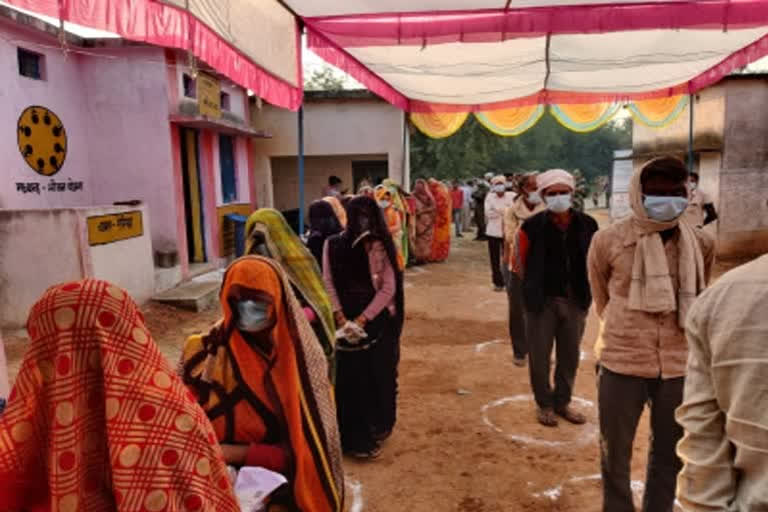Hyderabad: Sources of income of regional parties largely remain obscure as majority refuses to share their contribution list with Election Commission of India (EIC), according to an analysis released by Association for Democratic Reforms (ADR).
The report says that total income of 25 regional political parties touched Rs803.24 crores during the financial year 2019-20, of which 23 parties have not submitted their contribution reports to the ECI. Meanwhile, total income from unknown sources of these regional parties constituted 55.50% of their total income, which stood at Rs445.774 crores. Which means, half of the total income of regional parties are from hidden sources. Of which, Rs4.976 crores are from voluntary contributions, and Rs 426.233 crores from electoral bond.
The unknown sources are income declared in the Annual Audit reports submitted to the ECI, but without giving source of income for donations below Rs20,000. ADR report has also found 23 regional parties have not submitted their contribution reports, while 9 regional parties evaded filing both reports.
Some of the top regional parties that failed to declare their highest unknown income include Telangana Rashtra Samiti ( TRS-Rs89.158 Cr), Telugu Desam Party TDP-Rs 81.694 Cr), YSR-Congress (Rs 74.75 Cr), Biju Janata Dal (BJD- Rs 50.586 Cr) and Dravida Munnetra Kazhagam (DMK-Rs 45.50 Cr).
However, parties such as Indian Union Muslim League (IUML), Dravida Munnetra Kazhagam (DMK), Pattali Makkal Katchi (PMK), Maharashtra Navanirman Sena (MNS), Jharkhand Vikas Morcha-Prajatantrik (JVM-P), Sikkim Democratic Front (SDF) and Naga People's Front (NPF) provided details of donations below Rs20,000.
The contribution reports of Aam Admi Party (AAP), IUML and Lok Janashakti Party (LJP) are available on the EC website, but parties’ donations data show discrepancies as declared in their Annual Audit report and Contribution report (donations above Rs20,000).
The amount of total contributions declared by AAP, IUML and LJP in their audit reports is less than the amount of total donations declared in their contribution reports by Rs6.105 Cr, Rs31.20 lakhs and Rs4.16 lakhs, respectively. This is an example of disregard of the parties towards the guidelines formulated for transparency and disclosure requirements.
At present, political parties are not required to reveal the name of individuals or organisations giving less than Rs20,000. However, those who make donations more than Rs20,000 are considered known sources, and the parties are supposed to provide donor details with the ECI.
Income of 25 parties from known sources
⦁ Total income from known donors is at Rs184.623 Cr, which is 22.98% of the total income
⦁ Total income from other known sources (e.g. Membership fees, bank interest, sale of publications, party levy etc.) is at Rs 172.843 Cr, or 21.52% of total income
⦁ Total income of political parties from unknown sources is at Rs445.774 Cr, which is 55.50% of the total income of the parties.
Income from unknown sources
⦁ Rs445.774 crores is of the total income from unknown sources
⦁ Of this or Rs426.233 crores are from electoral bonds
⦁ Rs4.976 crores from voluntary contributions
⦁ Rs14.477 crores from sale of coupons
As the sources remain largely unknown, substantial amount of funds cannot be traced and are from ‘unknown’ sources. Donations from unknown sources include donations via electoral bonds, sale of coupons, relief fund, miscellaneous income, voluntary contributions, contribution from meetings/ morchas etc. The details of donors of such voluntary contributions are not available in the public domain.
Other known sources of income include sale of moveable & immoveable assets, old newspapers, membership fees, delegate fee, bank interest, sale of publications and levy whose details would be available in the books of accounts maintained by political parties.
While the National Political Parties were brought under the Right to Information Act (RTI Act) in 2013, they have still not complied with the decision. Full transparency is, unfortunately, not possible under the current laws, and it is only the RTI that can keep citizens informed.
ADR further recommended that both national and regional political parties must provide all information under RTI. This will only strengthen political parties, elections and democracy, it said.
Recommendations of ADR
As a very large percentage of the income of political parties cannot be traced to the original donor, full details of all donors should be made available for public scrutiny under the RTI. During FY 2019-20, total income of national parties from unknown sources totalled 70.98%.
According to ADR, any organisation that receives foreign funding should not be allowed to support or campaign for any candidate or political party. Mode of payment of all donations (above and below Rs20,000), income from sale of coupons, membership fees, etc. should be declared by the parties in the ‘Schedules’ of their audit reports, submitted annually to the Income Tax department and the ECI.
The ECI has recommended that tax exemption be awarded only to those political parties, which contest and win seats in Lok Sabha and State Assembly elections. The Commission has also recommended that details of all donors who donate above Rs2,000 be declared in public domain.
Scrutiny of financial documents submitted by the political parties should be conducted annually by a body approved by Comptroller and Auditor General and ECI which will enhance transparency and accountability of political parties in regard to their funding.



